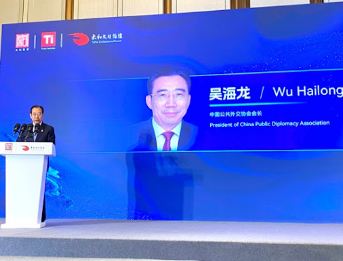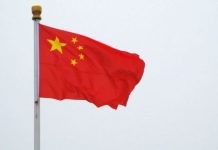BEIJING, SEPT 21 (DNA): The United States and its allies are increasingly adopting a geopolitical competition mindset to address international relations, resulting in heightened conflicts and confrontations worldwide.
This was stated by Wu Hailong here at the Sub-Session on International Relations of the 8th Taihe Civilizations Forum, according to a report carried by China Economic Net on Saturday.
U.S. Deputy Secretary of State Kurt M. Campbell has repeatedly asserted that China represents the greatest challenge in U.S. history. This perspective embodies a rigid Cold War mentality and a zero-sum approach prevalent within U.S. policy-making circles.
However, does this strategy truly serve America’s long-term interests?
Wu argues that “despite the economic and technological restrictions imposed by the United States and its Western allies, which are driven by geopolitical motivations, these actions have not hindered China’s progress.
Instead, they have become catalysts for China’s technological innovation.”
He emphasized China’s commitment to enhancing and expanding its product capabilities.
In the semiconductor sector, the U.S. sought to stifle China by restricting exports of lithography machines from Dutch manufacturers.
However, China has recently announced that it can now produce its own lithography machines, according to the Ministry of Industry and Information Technology. Moreover, chips have become China’s leading export commodity, with chip exports surpassing 500 billion yuan in the first half of this year—an increase of 26% year-on-year. China is poised to become the world’s largest exporter of chips by 2030.
“This demonstrates that U.S. pressure has not hindered the development of China’s semiconductor industry; rather, it has accelerated China’s independent research and development in this crucial area,” Wu noted.
In telecommunications, Huawei emerged as the top smartphone vendor in China during the first half of 2024, despite facing significant restrictions from the U.S. The digital economy in China is one of the fastest-growing sectors, further highlighting this resilience.
China has also showcased formidable competitiveness in new energy vehicles, achieving a 68% global market share. Its photovoltaic industry has consistently ranked first in production worldwide, becoming a vital contributor to global green energy initiatives.
Wu remarked, “The U.S. containment policy towards China has a double-edged effect, particularly on American companies.”
A recent Reuters report indicated that California Democrats urged the Biden administration to pause plans for new restrictions on technology exports to China, warning that further controls “could send longstanding U.S. companies into a death spiral.”
“The challenges faced by the U.S. are largely self-inflicted. Shifting harm on others will not resolve its own issues,” Wu pointed out. As U.S. economic strategist David Goldman aptly noted, “No matter what obstacles are placed in front of China, it will rise to the challenge and overcome them.”
Wu concluded with a philosophical reflection: “When the United States seeks to undermine others today, it may face dire consequences tomorrow.” This underscores the notion that pursuing gains at the expense of others often leads to negative repercussions.
The U.S. must recognize that the world is interconnected, and suppressing one nation will not yield benefits for another. True peace and development can only be achieved through cooperation and mutual benefit.=DNA
====================

















